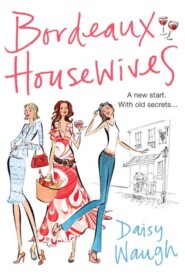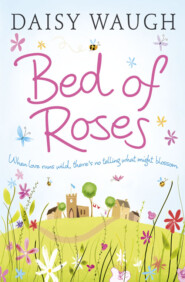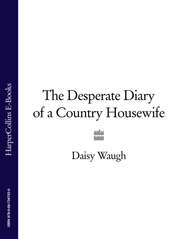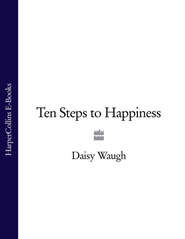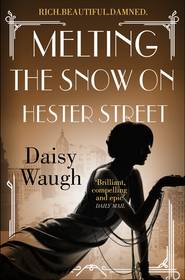По всем вопросам обращайтесь на: info@litportal.ru
(©) 2003-2024.
✖
Honeyville
Автор
Год написания книги
2018
Настройки чтения
Размер шрифта
Высота строк
Поля
‘Everyone’s out on the streets,’ the barman told us as we settled ourselves at the table.
‘Making trouble,’ Inez said.
‘Depends on your way of looking at things,’ muttered the barman.
We filled our glasses and turned away from him. ‘But you know everyone I know agrees,’ she told me, sucking back on her whiskey. (She may not have been accustomed to liquor, but I noticed she had taken a liking to it fast enough.) ‘These anarchists come into town with their crazy ideas, and then they infiltrate the camps and stir up the miners. The men were perfectly happy before the Unions came in. And now look where we are! Death on every doorstep! Murder at the drugstore!’
‘To Captain Lippiatt,’ I said, to shut her up. I didn’t want to talk politics – not with anyone, and least of all with her. ‘May he rest in peace.’
She stared at me, whiskey glass halted. ‘Captain Who?’ and then, ‘You know his name? You mean to say you knew him?’
‘Hardly very well. But yes, I guess knew him.’
‘How?’ And then, in a rush of embarrassment, and without giving me a chance to answer: ‘Oh gosh but never mind that!Did I tell you already – I work at the library. Do you ever go in there? You should. I’ll bet there are plenty books I could show you that you might enjoy.’
‘I love to read,’ I told her. ‘And I am often in the library. I’ve seen you in there before.’
‘It’s quite a thrill you know,’ she skipped on (I imagine the library was the very last thing she wanted to talk about). ‘I mean, once you get over the shock of it, and all. It’s quite a thrill to be here in this saloon. I’ve been walking past saloons all my life, never even daring to peep in. And now here I am,’ she beamed at me, ‘in a saloon! With you! It feels like the greatest adventure.’
‘I suppose it is,’ I said. ‘For you and me both.’
‘Do you suppose your friend Mr Lippiatt—’
‘Oh, I wouldn’t say he was a friend.’
‘No. But do you suppose he had a wife? Or children? Or anything like that? Maybe a mama. I think I should go visit them. Don’t you think I should?’
I laughed. ‘Whatever for?’
‘Whatever for? He and I, we looked at each other. Don’t you see the significance?’
‘Not really.’
‘Well, mine was probably the last human face, the last decent human face, not in the process of slaughtering him, which that poor gentleman ever laid eyes on. And then – Pop! He was dead.’ She sniffed. Picked up her glass. Glanced at me. ‘Y’know this is silly. Here we are, you and me, drinking in a saloooon together.’ She rolled the word joyfully around her mouth. ‘And I don’t even know your name. I am Inez Dubois, by the way.’
‘How do you do.’
‘I live with my aunt and uncle. Mr McCulloch. You’ve probably heard of him? Have you?’
‘No,’ I said automatically. Whether I had heard of him or not.
‘Mr McCulloch is my uncle.’
‘So you said.’
‘Well, he’s one of the old families. Ranching. Cattle. That’s where his money comes from. So he’s got no business with the coalmines, thank blame for that …’ She glanced at me. Already, her eyes were growing fuzzy with liquor. ‘Don’t you think so?’
‘It’s all the same to me.’
‘Even if the miners do get a fair wage. And nice homes and little yards and free schools and everything they could possibly ask for. Well, it’s all stirred up by the Unions now, isn’t it? And I would hate that. Just wouldn’t feel right, you know? To live off other people’s discontent. Whereas the ranchers aren’t like that. They’re altogether …’ She frowned. ‘Well, anyway, they’re not the same.’
Inez Dubois looked and behaved much younger than her age. She was twenty-nine years old, she told me that night (making her eight years my junior), the orphaned child of Mrs McCulloch’s sister, who died alongside Inez’s father in what Inez described as, ‘one of these train-track accidents’. She didn’t go into details, and I didn’t ask for them. Her parents died back in 1893, in Austin, Texas, and after the funeral Inez and her older brother Xavier were sent to Trinidad to live with their only living relation. The McCullochs had no children, and though Richard McCulloch was aloof and uninterested, his wife treated her nephew and niece as her own. Inez never moved out. Her brother Xavier, on the other hand, had left town some ten years previous, at the age of twenty-five, and though he wrote to Inez once a week, often enclosing a variety of books and magazines he believed might educate or amuse her, he’d not returned to Colorado since.
‘He’s in Hollywood now. Silly boy,’ Inez said, though by my calculation, he was a good six years her senior. ‘He’s making movies,’ she said. ‘Though I’ve never actually seen any, so I don’t suppose he really is. He says I would love it in Hollywood. It’s summertime – only cooler – a cooler summer, all year long. Sounds heavenly doesn’t it? Shall we go there together?’ She giggled. ‘After what happened today, I tell you I’m just about ready to leave this place. I wasn’t far off ready before. And now … Truthfully. I’m sick to death of it. Are you?’
‘Kind of …’ I laughed. It must have sounded more mournful than I intended.
She looked at me with her big, earnest eyes. She said, ‘You do realize, don’t you, that there are about a million questions I want to ask you. About everything. Only I guess I have a pretty good idea what it is you do.’She looked so uncomfortable I thought she might burst into tears again. I had to bite my lip not to smile. ‘And I don’t mean to pry. It’s probably why I’m yakking on like this. It just makes me nervous, that’s all. Because here we are, sitting here, and we’ve been through this terrible, awful thing together, when normally we wouldn’t even speak. And I was impolite to you in the drugstore, but you know I didn’t mean to be. I guess I just didn’t know any better. Because we can’t live more than a handful of miles apart and yet …’ She took a breath. ‘I don’t quite even know where to begin.’
‘Well you could begin,’ I said, ‘by asking my name.’
She opened her mouth—
‘And maybe even hushing up long enough to find out the answer.’
4 (#uf0dd83b0-f101-590f-aa7e-a8a3236d793b)
She discovered my name eventually. Though I’m not convinced she really registered it until some time later. I told her a little about myself – as little as I could – and watched her wide eyes watering, torn between outrage and pity.
‘You don’t need to feel sorry for me,’ I said, when her pitying expression was too much.
‘Oh but I don’t,’ she cried quickly, eyes sliding away.
‘After all, I am freer than most women and freer than any wife. I have money of my own. A wife doesn’t.’
‘Yes of course!’
‘A husband can beat and rape his wife and there is nothing she can do to prevent it. If a man beats me or rapes me, it is against the law. And even if it weren’t, here in Trinidad, we girls have friends who can make his life a misery. I have freedom. And one day,’ I told her, ‘when I have saved enough, I can stop this work altogether. And do what I have always planned to do—’
‘Yes?’ Inez asked, brightening. ‘Yes, and what is it?’
In truth the ‘plan’, if I could even call it such a thing, was no closer to fruition than it had been the first day I’d dreamed it up, seven or so years ago. I regretted mentioning it, and felt aggrieved with myself for having done so. But she wouldn’t let it go. She demanded to know what it was, my secret plan: what I might otherwise do that would save my wicked soul. I told her. I was a singer once.
Instant tears sprung. ‘A singer!Why, and you can be again!’ she cried. ‘You could sing at our own opera house! I just bet you could! You’re so dashing and beautiful and everything … I’ll ask Mr Haussman. He’s the manager. He’s quite an acquaintance of my uncle. I just bet you—’
‘But I don’t want to sing at the damn opera house,’ I snapped.
‘Well, of course you do!’
‘I am sick and tired of people looking at me—’
‘Even so …’
‘However, I admit it – I would love to teach others to sing.’
‘Well then!’ Inez was irrepressible: ‘You could start today! What’s stopping you?’
‘Plenty of things.’






